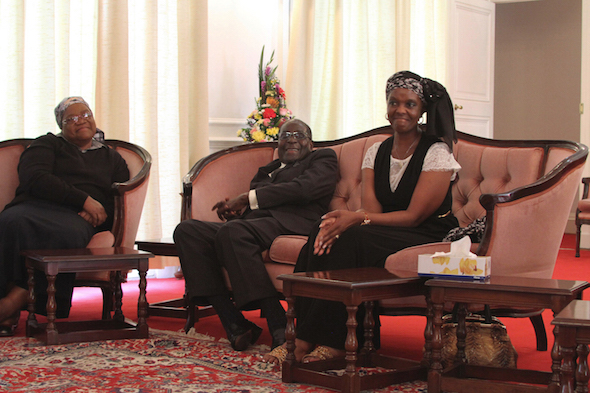Ascendance and Disruption in Zimbabwe, a Tale of Two Political Women
1 June 2017

Zimbabwean President Robert Mugabe with his wife, Grace, right, and former Vice President Joice Mujuru, left, in Harare in 2014. (AP / Tsvangirayi Mukwazhi)
HARARE, Zimbabwe—Until last year, Joice Mujuru was widely expected to succeed Zimbabwe’s 91-year-old president, Robert Mugabe. But in December, Mujuru, 60, was fired from her positions as vice president of the country and of the Zimbabwe African National Union Patriotic Front (ZANU PF), the ruling party she had served for more than three decades. Then, early in April, she was ignominiously expelled from the party entirely.
In the lead-up to Mujuru’s expulsion, Grace Mugabe, 49, the president’s wife, spearheaded a monthslong attack campaign on her character and political credentials. At a series of rallies and demonstrations, Grace Mugabe accused Mujuru of planning to assassinate her and the president as well as of being involved in corruption in large government projects, of demanding kickbacks on government contracts and of fomenting factionalism in the ZANU PF.
Speaking to military veterans in October, Grace Mugabe said of Mujuru: “One, she survives on extortion and does not want to work for herself. Two, she wants to grab power from the president illegally. Three, all minerals you [Mujuru] declare that they are yours, and four, you are incompetent.”
She also claimed Mujuru was secretly working for Western countries like the United States and the United Kingdom.


